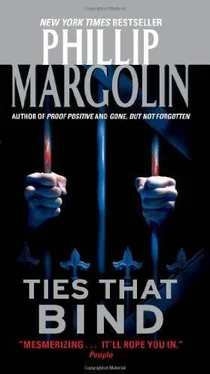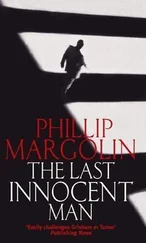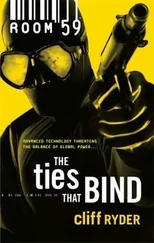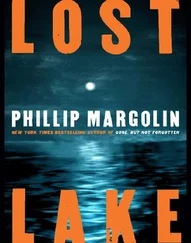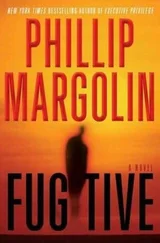"But you just told me that you panicked when he spoke to you, that you were too spent emotionally to swim anymore."
"Yes."
"Why do you think you felt that way?"
"I don't know."
"Did you trust him?"
"I . . ." Amanda stopped. "I don't know." Her eyes dropped to her lap. "I guess not," she whispered.
"Are you finding it difficult to trust other people?"
"I don't know."
"Think about it. You have friends, don't you?"
She nodded.
"Have you seen a lot of them since the incident?"
"I guess I haven't. I don't feel comfortable around them anymore."
Amanda suddenly remembered the way she'd treated Mike Greene. She felt very bad.
"There's a man I've been dating a little. He's very nice. I was supposed to go out with him the evening I saw the autopsy photographs and panicked. I was so rattled that I forgot all about the date. Then, when he showed up, I . . . I sent him away. I didn't explain why. I'm sure I hurt his feelings, and he's only been nice to me."
Amanda hung her head. She dabbed at her eyes with a tissue.
"You've been through a lot today and I think this is a good time to stop. But I'm going to talk a little before you go, and I want you to listen carefully and think about what I tell you--especially if you have another one of these incidents.
"First, you're not crazy. In fact, your reactions are so common that there's a name for them. What you are experiencing is called post-traumatic stress disorder. They used to call it shell shock in the First World War because soldiers who had been in combat manifested the problem most dramatically. We saw a lot of it in soldiers coming back from Vietnam. But it's not just war. Individuals who live through a psychologically distressing event that is outside the range of usual human experience can have the same symptoms. They can be triggered by a plane crash, torture, an earthquake, or a kidnapping--anything that involves intense fear, terror, and helplessness. The problem seems to be more severe and last longer when the stressor is of human design, like the one you encountered.
"One of the most common symptoms of PTSD is the reexperiencing of the traumatic event through nightmares and flashbacks. The anniversary of the event can trigger feelings of panic or anxiety, and the same feelings can be triggered by something that reminds you of the event, like a movie with a serial killer or just meeting someone who reminds you of the person who caused your terror."
"Like Toby."
Dodson nodded. "I don't want to get into this too much right now, but I do want you to understand that your responses are reasonable."
"Why didn't I have them right after I was attacked? Why did it take a while before I started having these flashbacks and the nightmares?"
"Good question. At first, when you thought the surgeon was still at large and could hurt you, you went into a survival mode with a heightened state of alert and you suppressed all of your emotions so you could deal with the danger. But once you felt safe, you relaxed and gave your doubts and fears time to surface. Your guard was down. When you came in contact with a stimulus like the autopsy photo or Toby Brooks, you were forced to recall the incident without time to prepare yourself, and you started to wonder if it could happen again."
"What can I do to make this stop?" Amanda asked, her voice almost a whisper. "That's why I came here. I want it to stop. I was happy before. I was a happy person." Tears welled up in Amanda's eyes again. She dabbed at them with a tissue. "I want to be happy again."
Dodson leaned toward Amanda. When he spoke, he sounded confident and comforting.
"You are a very strong person, Amanda. It took strength for you to come here. I can't guarantee that you'll ever feel the way you did before the attack, but I can tell you that other people have fought through what you are experiencing. Right now I think it would help if you keep doing things you enjoy and are around people you like and trust. I'd also suggest that you try to avoid situations or books or movies that might trigger a reaction."
"What about my work, Ben? I'm a criminal defense attorney. I deal with murder and rape every day. What do I do about that?"
"That's a question I can't answer right now, but it's something that both of us need to think about."
Part Two
GETTING BACK ON THE HORSE
Chapter Nine.
Tim Kerrigan had just finished another chapter of Alice's Adventures in Wonderland and was tucking Megan in when he heard the phone ring.
"One more chapter, please," Megan begged.
"Not tonight."
"Why not?"
"If I read you another chapter we'll finish the book sooner and then it will be all done and you'll be sad because Alice and the White Rabbit will disappear."
"But you'll finish someday anyway and I'll be sad."
"But you'll be sadder later."
"And they won't disappear, because you can read it to me again."
Kerrigan kissed Megan's nose. "You are too smart, young lady."
Megan smiled and followed up her advantage. "One more chapter. Please."
Kerrigan was about to give in when Cindy walked into Megan's bedroom.
"It's Richard Curtis," she said. Richard Curtis was Tim's direct supervisor. Cindy looked put out, which was the way she always looked whenever his office called him at home.
"I'll take it in the study."
He turned back to Megan. "Sorry, Buttercup."
Kerrigan kissed Megan, gave her a hug, and said good night. Then he went into his den.
"What's up, Dick?"
"I hate to do this to you but I just received a call from Sean McCarthy. He's at a crime scene and I want you to cover it."
"Can't you find someone else?"
"Not for this one. It's Harold Travis."
"You're kidding! What happened?"
"He was beaten to death."
Tim closed his eyes. He remembered saying good-bye to Travis at the Westmont.
"I can't, Dick, I knew him."
"Everyone knew him."
"I played golf with him this weekend. Can't you send Hammond or Penzler? They'd give their right arms to see their name in the paper."
"Look, Tim, the death of a United States senator is going to be covered by the national media. You know how to deal with them. I need someone out there who won't grandstand if someone from 20/20 shoves a microphone in his face."
Kerrigan was quiet for a moment. Harold Travis. How could he be dead? He didn't want to see someone he knew dead.
"Tim?"
"Give me a minute."
"I need you on this."
Kerrigan sucked in some air. He felt light-headed. Then he closed his eyes and let out a breath.
"I'll do it."
Portland turns from city to country in the blink of an eye. Fifteen minutes from Kerrigan's house, the streetlights began to disappear; the only light was from a quarter moon. The prosecutor was afraid that he would miss the crime scene, but a police car had been stationed near the turnoff to keep out everyone without official business. He flashed his ID and turned onto a narrow, unpaved driveway.
Tim's car bumped along for an eighth of a mile. He had played blaring rock music as he drove out of town so he wouldn't have to think about where he was going and what he was going to see, but he turned off the radio when he spotted flashes of electric light through the trees. Then the dirt track turned and the prosecutor saw an assortment of official vehicles parked in front of a tiny A-frame house. It looked like every light in the cabin was on, and the light leaked across the lawn, bleeding out just beyond Kerrigan's car.
The A-frame was so small that only an unmarried person or a childless couple would tolerate it. Tim stood in the dark for a few minutes, fully aware that he was putting off the inevitable, before walking across the lawn. As he approached the house, he felt a little sick and disoriented, like a family member entering a funeral parlor.
Читать дальше
